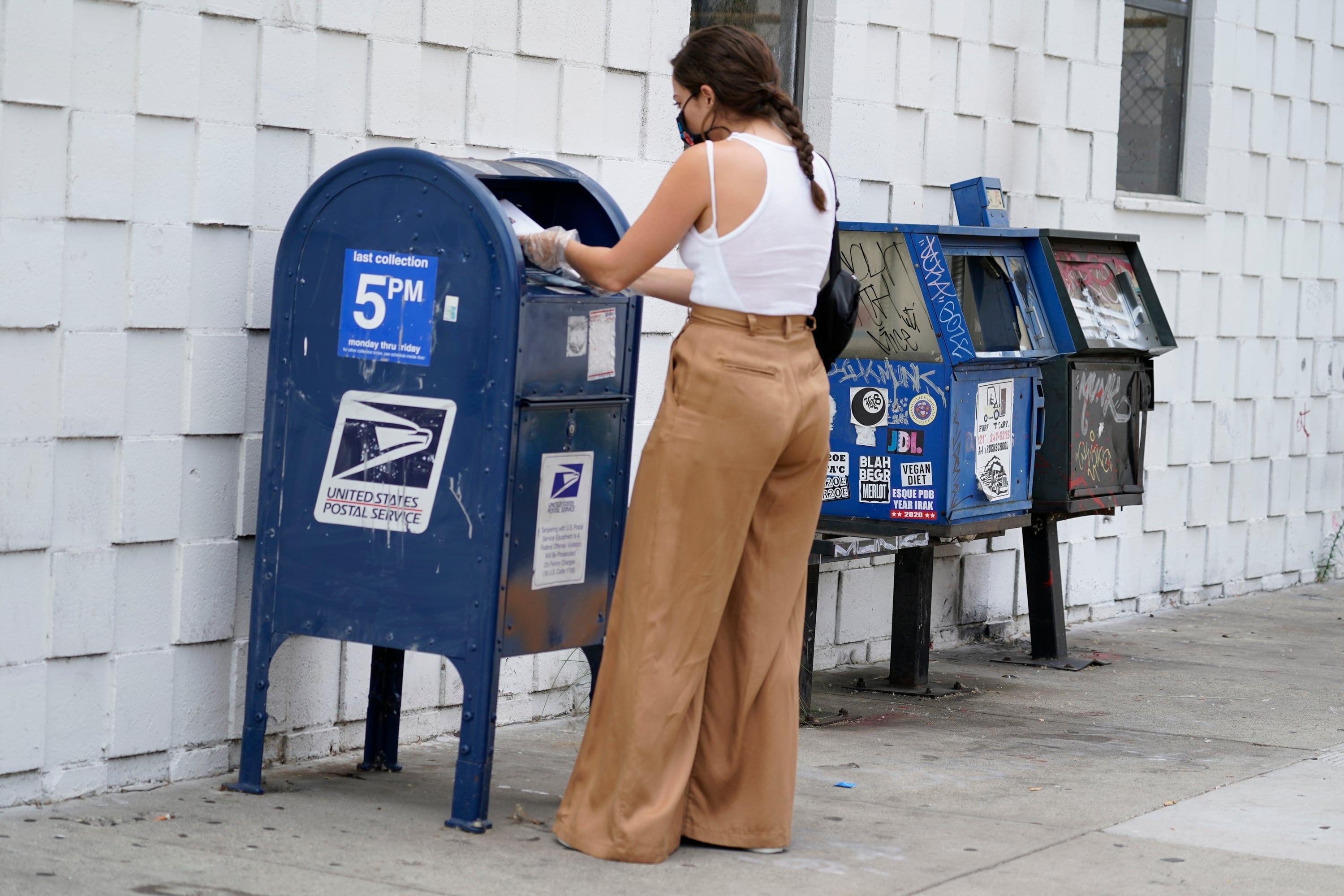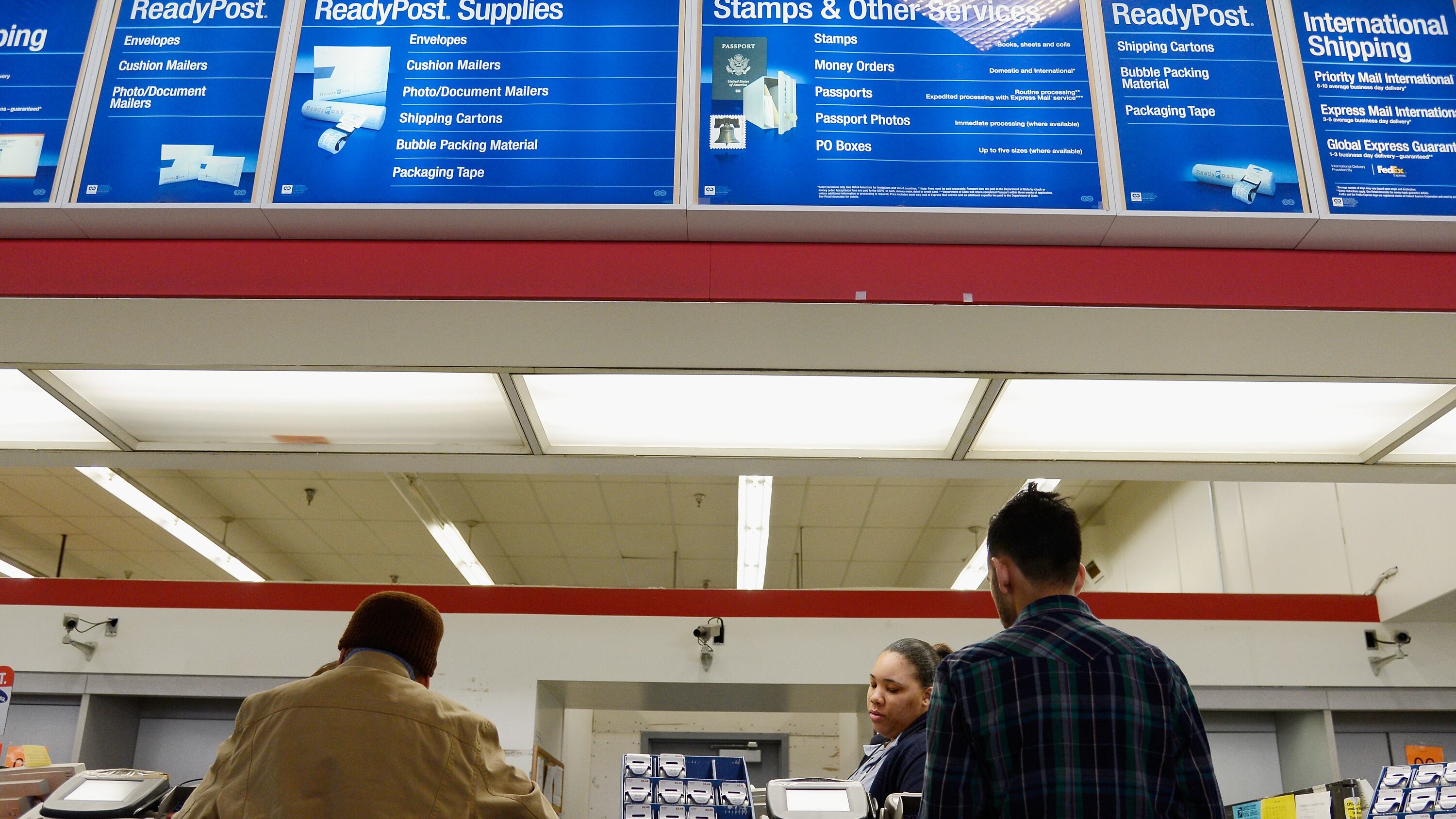The head of the United States Postal Service on Friday acknowledged “dips” in service in recent months but denied any large-scale failures or deliberate mail slowdowns were to blame for problems with veterans prescription deliveries or other postal operations.
“We are working here feverishly to get the system running, add stability, and also to hire more workers to handle the delivery process,” Postmaster General Louis DeJoy said during testimony before the Senate Homeland Security and Governmental Affairs Committee.
“We serve 161 million people. We still deliver at 99.5 percent of the time. We have significant efforts to continue to improve on that process, and everybody is working feverishly to get that right.”
RELATED

Friday’s hearing was focused on concerns that the USPS will not be able to handle — or may actively work against — the rush of mail expected ahead of the November presidential election.
Millions of Americans (including service members stationed outside their home states) are expected to use the service to cast their ballot, in light of the ongoing coronavirus pandemic, raising worries about the reliability of the system.
But numerous lawmakers also relayed anecdotes of veterans struggling to get mailed prescriptions in a timely fashion because of postal service changes in recent months, a worrisome trend given limited access at Veterans Affairs pharmacy sites in recent months because of the virus outbreak.
“One veteran fills prescriptions for his VA benefits, and he told me there has been a ‘noticeable slowdown in mail delivery delays that have caused me to ration my medication,’” Sen. Maggie Hassan, D-N.H., told DeJoy. “He started cutting back on dosage to have pills or skipping alternate days to make them last.”
Veterans advocates have reported similar complaints from members in recent months, and incomplete answers from federal agencies on the reasons for slowdowns.
Veterans Affairs officials this week said the average delivery time for veterans prescriptions has slipped from 2.3 days in summer 2019 to nearly 2.9 days this summer, but noted that is still faster than the three to five days the department advises veterans to expect when receiving medicine through the mail.
“VA continually monitors prescription delivery times throughout the country and the department has always used a variety of methods to ensure timely delivery, including in-person pharmacies, USPS, and commercial carriers,” Deputy Assistant Secretary for Public Affairs Curt Cashour said in a statement.
The postmaster attributed much of the recent service problems to worker shortages and procedure changes related to the coronavirus outbreak. He said he is confident “the postal service will deliver on this election” and pledged to make sure delivery of ballots, medications and other critical mail is not harmed in coming months.
Earlier this week he delayed some operation reform plans within the system, but DeJoy said he expects to resume those changes after the November election.
“We need to be sustainable, and we need to cover our costs,” he said. “I have a plan to do that.”
Most — but not all — of the criticism from the Senate committee of the post office came from Democrats on the panel. Sen. Rand Paul, R-Ky., blasted accusations of election interference as a “partisan witch hunt” and hailed DeJoy’s efforts as much-needed reforms for a government bureaucracy.
DeJoy is expected to testify before House lawmakers concerning the same mail delay issues on Monday.
Leo covers Congress, Veterans Affairs and the White House for Military Times. He has covered Washington, D.C. since 2004, focusing on military personnel and veterans policies. His work has earned numerous honors, including a 2009 Polk award, a 2010 National Headliner Award, the IAVA Leadership in Journalism award and the VFW News Media award.





